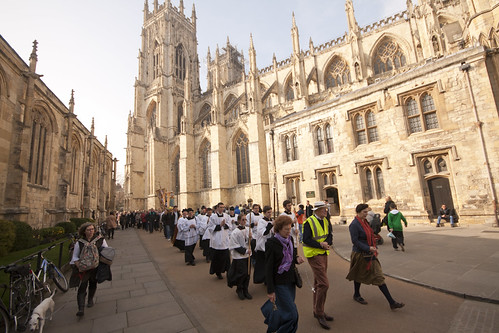
My last post showed pictures of the Mass for the York Pilgrimage; this shows the procession. From the Parish Church of St Wilfrid's, we walked past the Minster. As is clear from the photographs, the procession, like the Mass itself, was very well supported, and it made a great impression on the locals and tourists in the city.
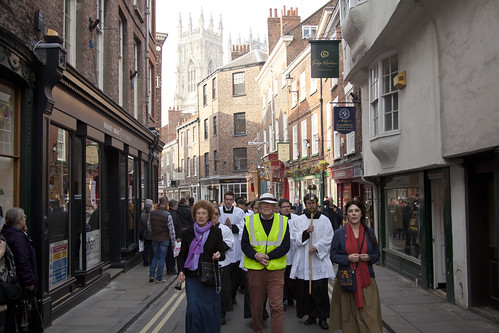
We passed into the narrow streets of the Medieval city, and the Shambles, the street of butchers' shops where St Margarat Clitherow lived.
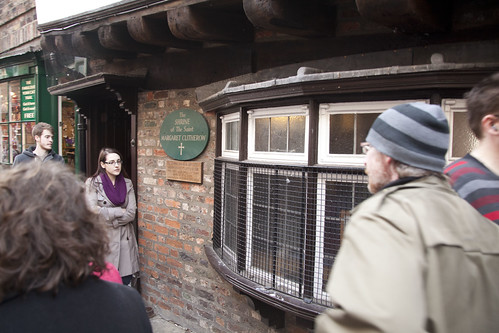
And where her shrine is today.
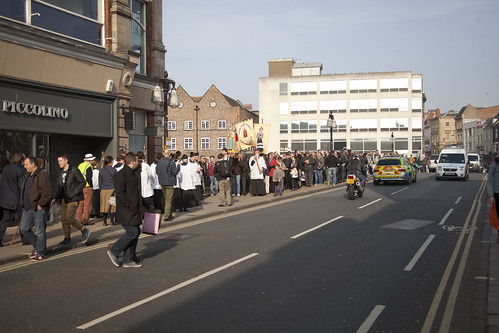
From there we walked down to the site of martyrdom, which was the Tollbooth on Ouse Bridge. The site today is marked with a bronze plaque. We paused at this end of the bridge for prayers.
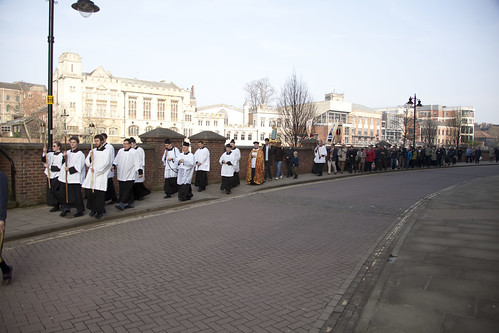
We walked along the South East bank of the river to the next bridge, Lendal Bridge, crossed that and returned to St Wilfrid's; York Minster can be seen behind it as we approach.
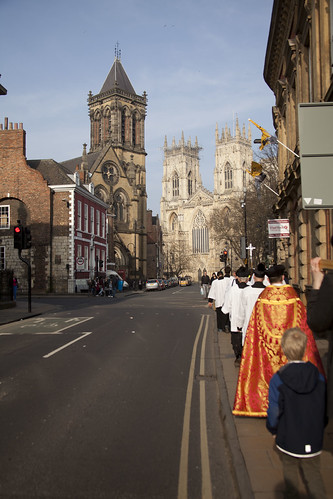
Fr Richard led the procession in a splendid red cope.
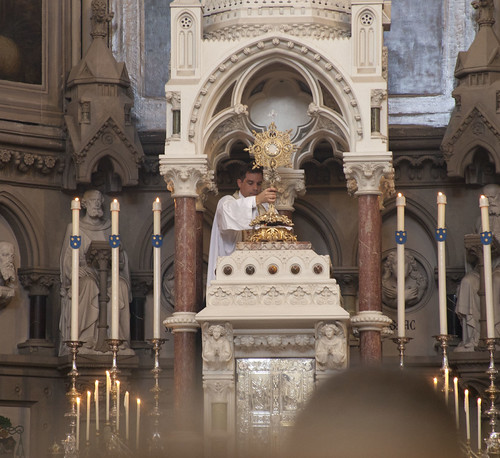
After the procession, we Fr Michael Brown led Benediction; above is Fr Nicholas Edmonds-Smith of the Oratory placing the monstrance on its throne above the Altar.
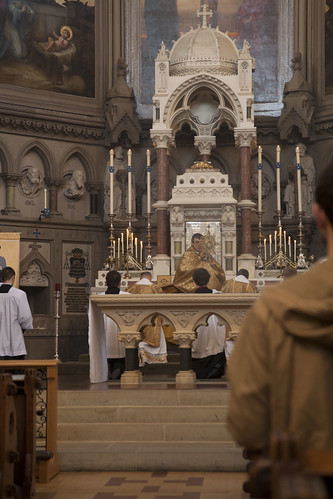
The next day I returned for Sunday Mass in St Wilfrid's at 5pm. It was a Traditional Mass, Missa Cantata, celebrated by Fr Nicholas, attended by about 40 people. Until the arrival of the Oratorians this provision in York was arranged with great difficulty by a rota of priests.
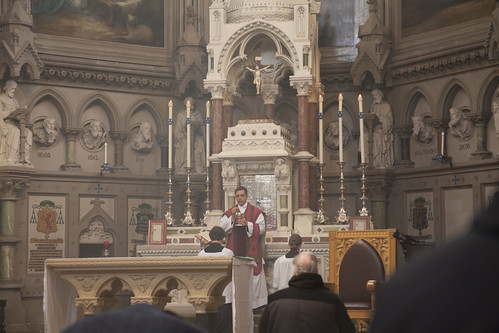
More photos here.
Perhaps St Wilfrid''s is ready to return to the approved practice of having just the one Altar of Sacrifice now?
ReplyDeleteSuch a pity about the recent removal of the Communion rails too - they are such a help for the infirm and those who wish to kneel to receive their Lord. Many who are unsteady on their feet, or those bearing small children in their arms, find it difficult to just stand in a space after walking to receive Holy Communion.